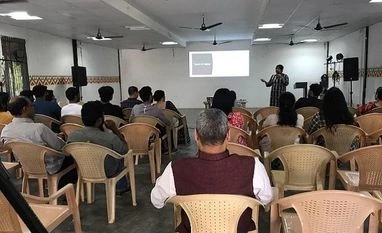In fact, Verma’s decision to start Invisible Scars six years ago stems from this dissatisfaction. “I was brought up in a very traditional community where domestic violence was considered normal,” Verma says. Over the years, she observed that survivors had no access to safe space where they could speak about their feelings and experiences. Most didn’t even know what resources they could tap if they wanted to walk out of abusive relationships. And very few understood what an equitable relationship was.
Creating an online platform was a logical step. This has made the Invisible Scars model replicable and one that can easily transcend geographies. “We started a secret support group on Facebook where survivors shared experiences and gained strength from one another,” she says. But as the members grew (the forum has over 1,700 members today), Verma started collating lists of valuable resources — counsellors, NGOs, lawyers and allies in different cities in India and abroad.
Further, Verma believes that the need of the hour is to rehabilitate perpetrators of domestic violence and effect attitude and behaviour change among them. Companies can help in this regard. “Just like the Yellow Cards issued to errant players in international soccer matches, HR departments of companies could also issue warning cards to employees perpetrating domestic abuse,” she says. “They shouldn’t treat domestic abuse as a ‘personal’ matter!”
Going forward, Verma dreams of creating a geographically agnostic platform for domestic abuse survivors where they can access a slew of free and paid services. This will need funds she doesn’t yet have, but Verma is confident that this will go a long way in bringing domestic abuse out of the bedroom and into public discourse.
To learn more, https://bsmedia.business-standard.cominvisiblescars.in. To join their Facebook group, send a request to Ekta Viiveck Verma or email on info@invisiblescars.in
To read the full story, Subscribe Now at just Rs 249 a month
Already a subscriber? Log in
Subscribe To BS Premium
₹249
Renews automatically
₹1699₹1999
Opt for auto renewal and save Rs. 300 Renews automatically
₹1999
What you get on BS Premium?
-
Unlock 30+ premium stories daily hand-picked by our editors, across devices on browser and app.
-
Pick your 5 favourite companies, get a daily email with all news updates on them.
Full access to our intuitive epaper - clip, save, share articles from any device; newspaper archives from 2006.
Preferential invites to Business Standard events.
Curated newsletters on markets, personal finance, policy & politics, start-ups, technology, and more.
Need More Information - write to us at assist@bsmail.in
)